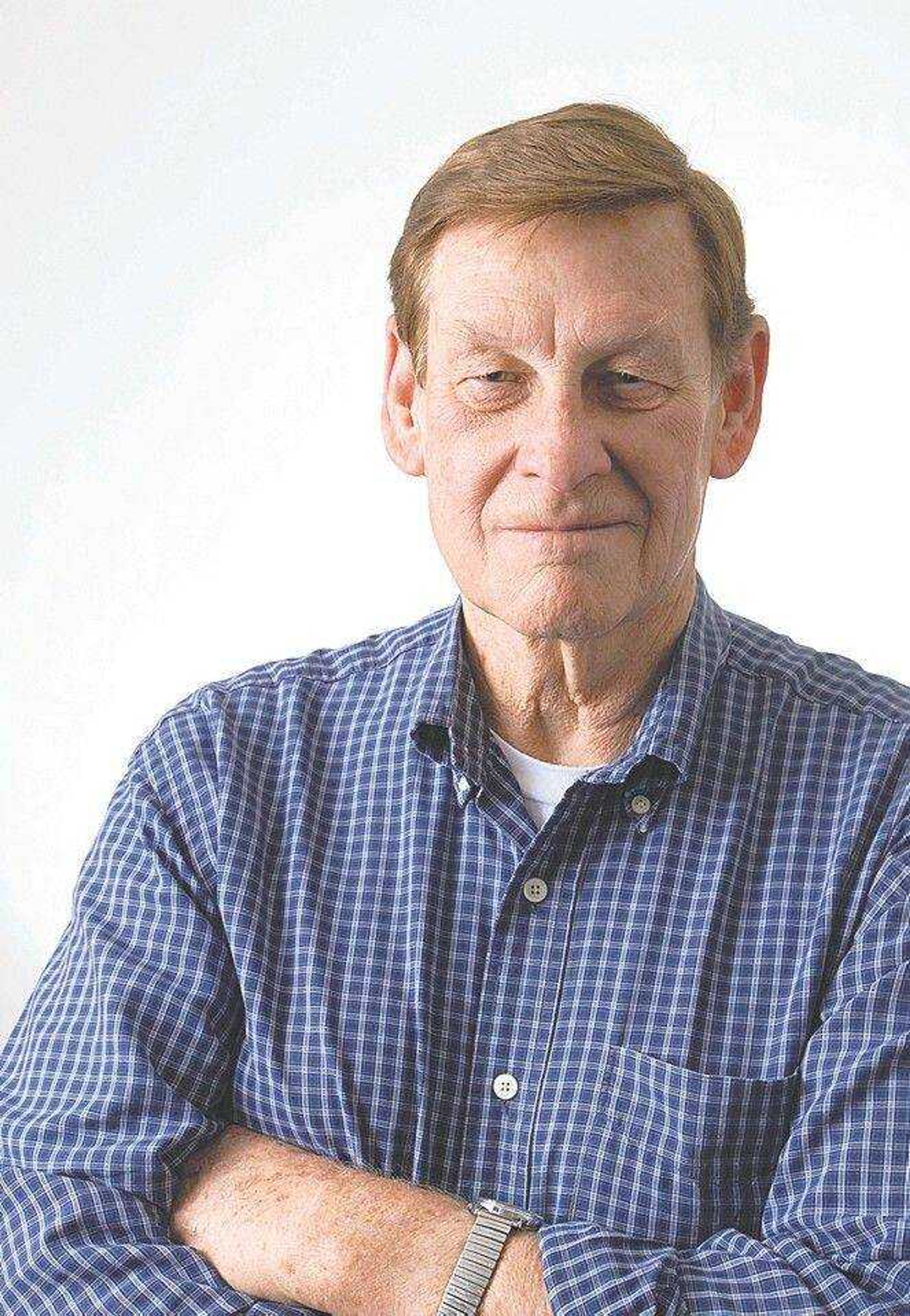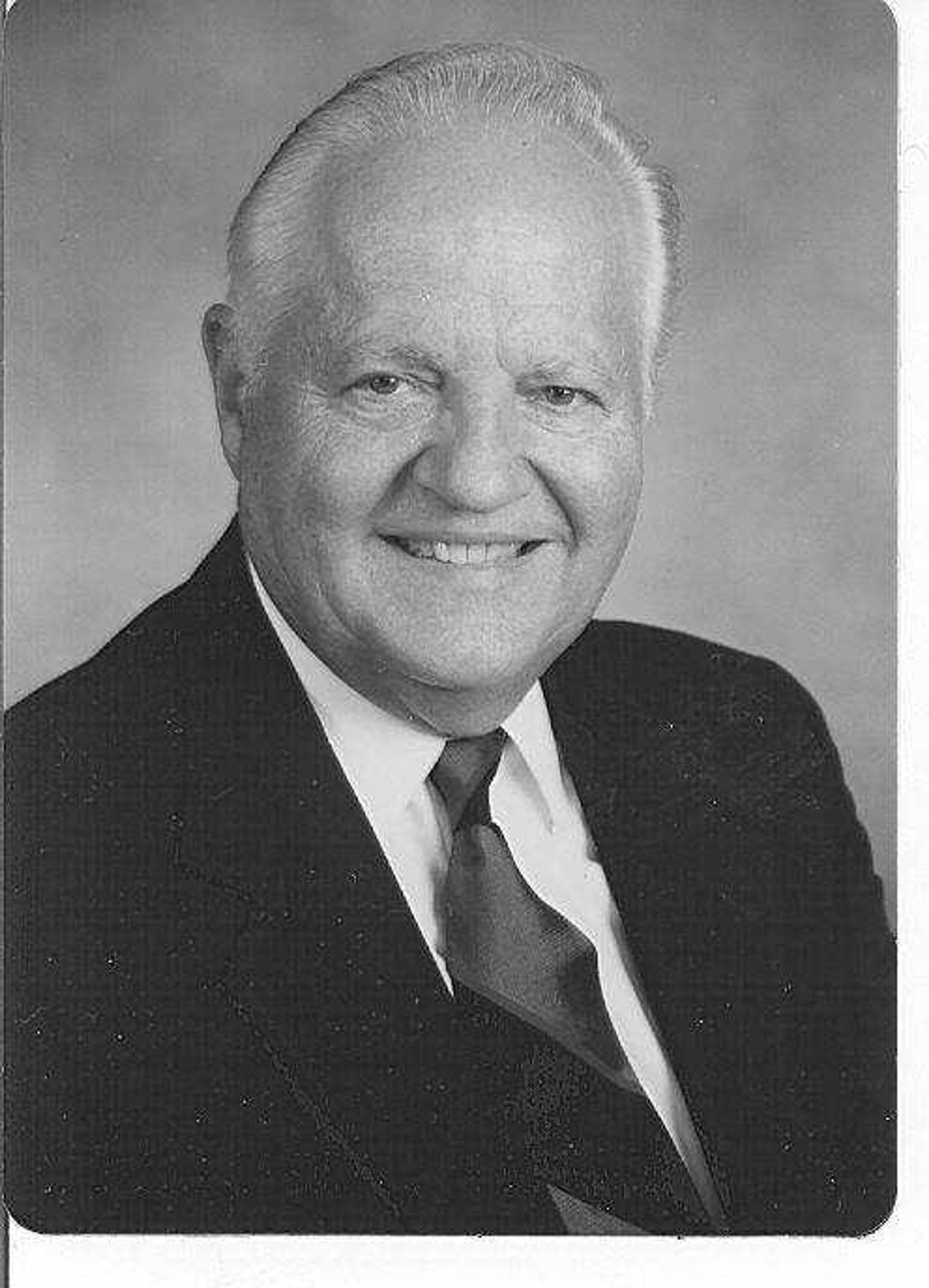Fame growing in our own backyard
Southeast Missouri is defined by its special people and special places. Many people know David Niswonger is a special person. He is recognized in the medical field as one of Missouri's first public health sanitarians and for his success as the administrator of Southeast Missouri Hospital. ...
Southeast Missouri is defined by its special people and special places. Many people know David Niswonger is a special person. He is recognized in the medical field as one of Missouri's first public health sanitarians and for his success as the administrator of Southeast Missouri Hospital. Others know him as a superb genealogist, "the historian" of the Niswonger family that moved from North Carolina to Missouri in 1799-1800. His dedication to the preservation of his family's history contributed significantly to the publication of a 970-page history of the Niswongers.
His record as a successful community organizer is remembered by those who know of his work with the American Heart Association and by those who are aware of the evolution of the Missouri Division of Public Health in Southeast Missouri. But few people in the region understand that Niswonger has an international reputation as a great hybridizer of irises and daylilies. Even his good friend Vernon Meyer of Altenburg, Mo., was unaware of Niswonger's fame until the two combined in the early 1980s to send samples of 28 irises to a prominent German hybridizer.
This gift was graciously and enthusiastically acknowledged in a letter back to Meyer stating, "I DID NOT KNOW THAT YOU KNEW THE GREAT AMERICAN HYBRIDIZER!" Upon reading the letter Meyer immediately called Niswonger and asked his good friend, "Are you the great American hybridizer?" A guided visit to "Dave's Iris Garden" in Cape Girardeau and his fields and seedling beds in Gordonville and Patton, Mo., provide stunning evidence that David Niswonger is, indeed, a man with a gentle and magic touch with plants and trees -- and people.
Since age 6 when he assumed responsibility for six tomato plants in his grandfathers's garden near Patton, Niswonger has found gardens places of excitement, curiosity and reward. He will soon be able to claim eight decades of gardening experience, and he is as passionate now about working with plants as when he tended those first six tomatoes in 1932.
David's father was a Methodist minister who took the family to many small towns in southern Missouri. He graduated from Linn High School in 1943, enrolled in a pre-med program at Central Methodist College. When his father was transferred to the Maple Avenue Methodist Church in Cape Girardeau, David entered the pre-med program at Southeast Missouri State College.
When he was drafted into the military in 1944, his medical training contributed to his assignment as a medic in the Navy and he spent the last year of the war at a naval hospital in Seneca, N.Y. This was an important introduction to hospitals and while he became skilled in the use of syringes to administer the new antibiotics, especially penicillin, he had experience with every function of a hospital.
David left the service in 1946 and returned to Cape Girardeau, graduated from Southeast Missouri State College, and called Ms. Marie Deneke who had attracted his eye before the war. On Aug. 1, 1948, they married. He earned a master's degree in public health from the University of North Carolina and from 1950 to 1961 worked as a public health official throughout Southeast Missouri. From 1961 to 1976 he served as the assistant administrator at Southeast Missouri Hospital, moving to administrator from 1976 to 1991, a position from which he surely established an enduring place in the history of Cape Girardeau.
Throughout his career "Dave's Garden" was a vital place for exercise and relaxation. Because he only lived five minutes from the hospital he could drive home, have a quick lunch, hybridize a few plants and be back at work within the hour. His record of achievement in creating new varieties of plants is astonishing, resulting in national and international friendships, recognition and awards for work with irises, daylilies, gladiolas, dahlias, daffodils, hickory nuts, black walnuts and English walnuts. He credits the support of his wife, Marie, for much of his success. Near the end of a recent conversation he firmly stated, "I have been blessed."
In his view, Cape Girardeau is an ideal place to work with plants because here north, south, east and west come together, making this a "virtual Garden of Eden" for plants. Oscar David Niswonger II has been a special person in a special place.
Frank Nickell is the director of the Center for Regional History at Southeast Missouri State University. He studies the history of Southeast Missouri and the people in it. You can also hear his award winning program, "Almost Yesterday" at 7:49 a.m., Wednesdays on KRCU, 90.9 FM and KSEF, 88.9 FM, Farmington.
Connect with the Southeast Missourian Newsroom:
For corrections to this story or other insights for the editor, click here. To submit a letter to the editor, click here. To learn about the Southeast Missourian’s AI Policy, click here.











